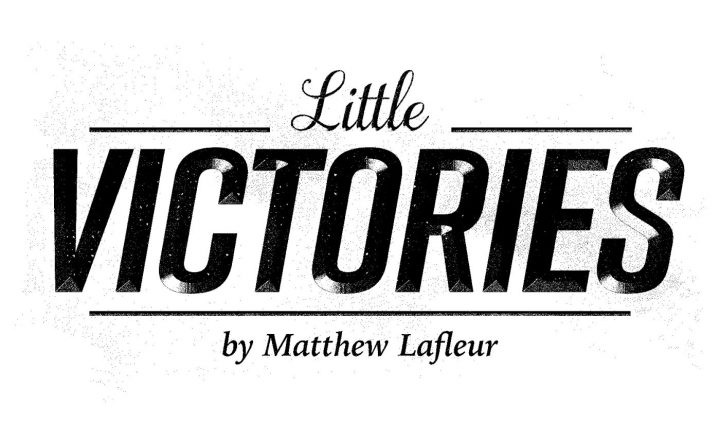Choosing Our Own Identity

On an otherwise typical day of my self-quarantine, I careened to the side of my wheelchair and couldn’t stop. I wasn’t sure if the culprit was a coughing fit or an inability to correct my balance. After the initial thud and the whoosh of air leaving my lungs, I came to the aggravating realization that I had fallen. Again.
I mentally checked my bearings.
I realized I was unharmed. I’m lucky that I haven’t been hurt during most of my falls. I’ve only broken a bone once, on a trike, which was an accident of unfamiliar elevation, slow-response braking, and an inconveniently placed park bench. But I don’t even consider that a fall.
Earlier this year, I fell and needed stitches on my forehead. Of the hundreds of times I’ve fallen, that gash on my face has been my most serious injury. I choose to see that as a little victory.
Back on the floor, once I was confident that I hadn’t hurt myself in this fall, I tried with all my might to climb back into my wheelchair on my own. Although I practice doing this maneuver every week at physical therapy appointments, most times when I fall at home, I wear myself out trying to get back in my wheelchair independently. Then I sheepishly turn to my smart speaker to call someone for help.
I am attempting to be kinder to myself, although it’s hard. I tend to berate myself in those moments, waiting on the floor feeling helpless and weak.
This should be easier. I should be stronger.
Since this situation repeatedly happens, I’m beginning to believe that one of the greatest fears of my youth has come true: Friedreich’s ataxia has come to define me.
At the earliest stages of my diagnosis, I dreaded that this would happen. In a way, I still do, although I’m aware that having Friedreich’s ataxia would be one of the first things others would say when describing me to a stranger.
Even though FA is such a huge part of my identity, I am surprised to report that it’s not as miserable as I assumed it would be, before its progression. I laugh loudly, have many great friends, and hold a job that I love, thanks in no small part to FA.
I’m not sure I understand this contradiction of being OK with the colossal impact of something in your life, yet not wanting to be defined by it. Maybe this will make more sense if I look at the language I used above to describe my falls: “culprit,” “accident,” “sheepishly,” “call for help.”
Maybe the truth is that sometimes I see Friedreich’s ataxia as overpowering, and I’m nothing more than a casualty of the disorder. This was especially true when I was younger and facing the cold facts of disability in my future.
FA was the death sentence, and I was the dead man walking. Or maybe the dead man rolling.
I’m starting to realize something: I have no control of the physical outcomes of FA, and that is heartbreaking. But it is not the end of my story. I may be unable to choose my situation, but I choose my response to it. I refuse to be a passive victim.
Nor should you.
Maybe you aren’t fighting FA today, but we all are living in the shadow of the pandemic. We can’t totally control its outcome, but we can control our reactions to its chaos. Will we quake with fear, respond in anger, bury our heads in ignorance? Or will we persevere for others’ sakes?
That part of the story hasn’t been written yet. Choose well.
“Between stimulus and response there is a space. In that space is our power to choose our response. In our response lies our growth and our freedom.” –Viktor E. Frankl
***
Friedreich’s Ataxia News is strictly a news and information website about the disease. It does not provide medical advice, diagnosis, or treatment. This content is not intended to be a substitute for professional medical advice, diagnosis, or treatment. Always seek the advice of your physician or another qualified health provider with any questions you may have regarding a medical condition. Never disregard professional medical advice or delay in seeking it because of something you have read on this website.







Barbie Miller
Another one of your great columns! I don't know if I could accept being wheelchair bound. I used a wheelchair almost all the time at one point in my life to prevent falls. I did not handle it well at all. Currently I use it for long distance. Which I have accepted. It's not ideal, but I'm fine with it. I don't worry about being wheelchair bound soon, but i still think about it sometimes. I wish people would understand the difference between wheelchair bound and using a chair for long distance.
Matt Lafleur
Thanks Barbie! Yes, transitioning to the full time use of a good is incredibly hard- at least it was for me! But it’s pretty incredible how we learn to adapt, persevere, and even be happy, when it seems it’s our worst case scenario.